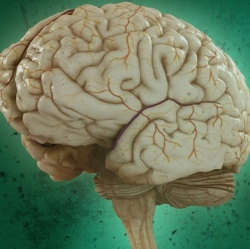
According to researchers, humans liberated a key region of the brain called – the cortex- from routine tasks, which helped the brain crunch more information and solve complex problems. Inspiration for the study came from Tyler Shine, 2-year-old child of Mac Shine.
When Tyler started walking, his grandfather and dad noticed that he took each step with great concentration. After he got used to managing the upright position, Tyler started paying attention to other things. Any task for that matter, say learning how to play the piano, requires a lot of attention at the beginning. However, once a person learns the basics, he/she begins playing without paying much attention.
"Studies of brain function suggest that we shift the control of these routine tasks down to ‘lower’ areas of the brain, such as the basal ganglia and the cerebellum," Mac Shine said in a news release. "So, humans are smart because we have automated the routine tasks; and thus, can devote our most potent mental faculties to deal with new, unpredictable challenges."
Researchers believe that learning how to walk on two legs instead of four made humans smarter. Walking upright taxed the brain; it had to juggle information coming from all sensory organs, while keeping the balance. This led to a kind of division of labor in the brain and the cortex was given higher-intelligence tasks such as thought, language and conscience.
